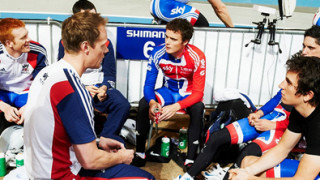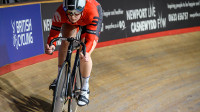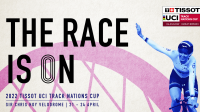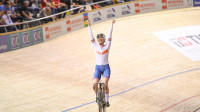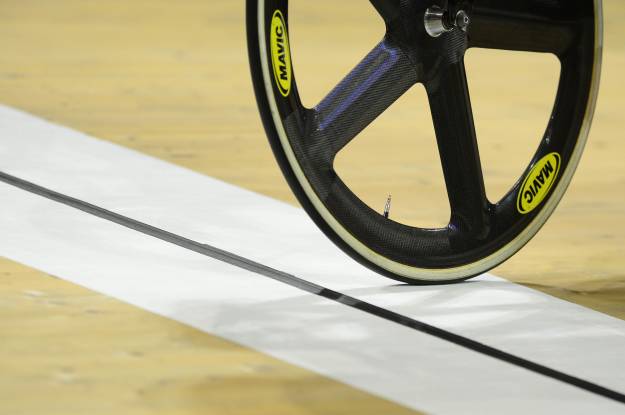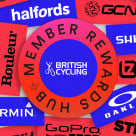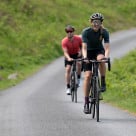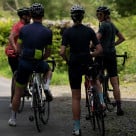In part 2 of our interview, Great Britain men’s endurance coach Dan Hunt speaks about the opposition and managing the coach/rider relationship to get the best performance possible.
Dan Hunt and the team pursuit squad at the European Championships
Great Britain men’s endurance coach Dan Hunt has admitted that whilst the primary focus is on his team pursuit squad’s performance it ‘would be missing a fairly big trick’ not to pay attention to other nations.
With the countdown firmly on to London 2012, Hunt accepts that competitor analysis forms part of his role – observing, analysing and comparing other nations’ efforts.
“Our Monday morning training session will look the same regardless of what the Australians are doing, but it’s also my job to be acutely aware of what performances the other nations are doing and more importantly how they are constructing those performances,” Hunt said.
“We will spend time on competitor analysis - looking at how they ride, what gears they ride, what position they hold themselves in, which of their riders goes man one, man two, man three and man four, the equipment they ride, we will always look. Ultimately it is us against them so you would be missing a fairly big trick if you weren’t having a look at them. When we are here and working we just concentrate on ourselves, we can’t control what the other team does, but it is always good to see when they put themselves in a competitive environment what they are doing. There’s nothing we can do about that but you want to see what your competitors are up to.”
Nearer to home, Hunt’s focus is firmly on nurturing a winning performance from the endurance riders, a process which involves, amongst other things, creating the right atmosphere for riders and Hunt himself to thrive in. Creating such an environment lies within Hunt’s coaching responsibilities and is a component of the wider task of managing a successful working relationship with the riders.
“All of these guys are professional bike riders -some of these guys ride pro tour and have fantastic careers on the road. The team pursuit is an environment that I want them to want to be a part of. I want them to think of it as an environment where they work hard but they also enjoy themselves - that it’s not an environment where they feel harassed, bullied, that their place is up for grabs all the time.
“This should be a process that we as a whole team enjoy. I don’t think that many people get the opportunity to coach or be part of a team, an Olympic team pursuit team, on your own turf. The way to the best out of somebody is not to make them miserable.”
“There’s a job to be done and a role to be played. You fulfil so many roles in a day - one minute you are the authoritarian, the disciplinarian, the next minute you’re the arm round the shoulder consoling somebody. How you do that depends on your personality, you’ll always be part of the team not one of the team and that’s how I see myself from a coaching point of view. It’s their team pursuit, it’s their performance and it’s their ride. My job is to help shape, help construct. My job is not to shout and scream and kick people down this pathway, if people want to do it the door is wide open, if not they can find something else.
“You’ve got to be prepared to push; you’ve got tired guys. That’s when you bring the energy.”
It’s that energy that Hunt and his team will look to draw on during the ‘pathway’ to, and ultimately at, the Games themselves if they are to produce the perfect denouement in London.

